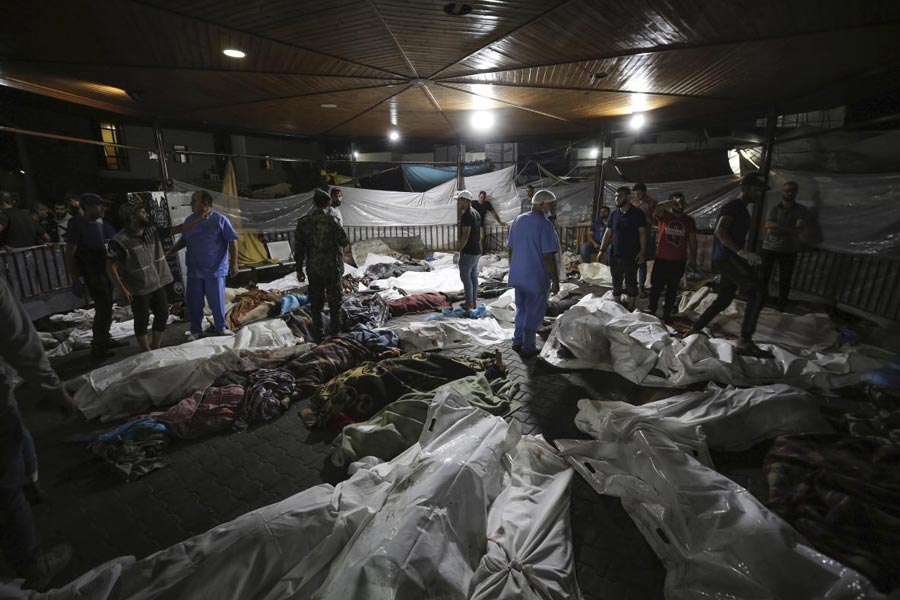The skies were quiet and Mohammed Ashour was finally safe, but for days after leaving Gaza the 13-year-old was unable to sleep.
He had made it to a cancer-treatment centre in Jordan, and the hope it offered, and yet he could not stop thinking about what he had left behind.
The two-bedroom apartment, for example, where his family had sought shelter. They had crammed into it with about 70 relatives after fleeing the fighting in Gaza, but when they left for Jordan, the stocks of flour were empty.
“What would the family who stayed behind have for dinner?” Ashour recalls wondering during his sleepless nights.
When the Israeli military started bombing Gaza in response to the Hamas-led attack on Israel on October 7, what Ashour hated most, he said, was the sound of airstrikes. The smells after an explosion were also a problem, and would make his breathing difficult.
Ashour, a top student, was diagnosed with Hodgkin lymphoma before the war began, in January 2023. When the fighting began, his mother, Maha, was determined to get him abroad for treatment.
Maha insisted that the whole family leave together, saying that she could not imagine abandoning her husband and other children. St Jude Children’s Research Hospital stepped in and helped the whole family make it to the King Hussein Cancer Centre in Amman.
Before the war, the centre had about two dozen cancer patients from Gaza. Last month, the total was five adults and 49 children, receiving treatment, food and accommodation.
Most of the patients are housed a seven-minute car ride from the hospital, on the fourth floor of an Amman hotel. That’s where Ashour has been staying, and where his mother has been preparing meals for him.
Ashour’s doctors advised him not to socialise too much after he got a bone-marrow transplant that compromised his immune system. But the smell of his mother’s cooking wafts through the hallway of the fourth floor, drawing other children to her door seeking tastes.
Ashour helps care for some of the other children, since not all were able to leave Gaza with their mothers.
Mohammed Abdel Hadi, too, left his family in Gaza to get treatment in Amman, but the separation has been much harder for him: He is only 13.
A few weeks after arriving at the King Hussein Cancer Centre, the boy known for his smile locked himself in his room and refused to come out — or to receive treatment — unless his parents came and joined him. (He had travelled with an uncle as his caretaker.)
The hospital workers were unable to coax Hadi out. Only a call from his mother, phoning from the family’s partially destroyed home in central Gaza, succeeded.
Hadi was diagnosed with acute leukaemia during his summer vacation in July 2023. “Once the war ends, I want to go back to Gaza,” he said. “I miss the sea.”
New York Times News Service











